May 3, 2022
Union organizing is as hard as winning election in the USA
Abortion rights, unionization, winning elections.
They all just seem too much work for the left in the USA – at least that is what the corporate media are outlining. Or, is it that the lens we are looking through at the USA is wrong? Perhaps the real problem is that the USA is not a democratic, progressive country. Perhaps it is a culturally backwards, highly religious, autocratic state that exists solely for the benefit of Capital?
Liberalism is likely at the heart of the problem for the "left" in the USA. The idea of winning a vote is not really primary to their ideology. It is about the dominant ideology supporting some magical easy progression to a better future through a sense of historical entitlement. In other words, they tend to believe their own bullshit.
Obviously I think Alito and the weirdos on the right of the SCOTUS-A are wrong, but one point seems half-true: you have to win elections to win rights.
As the Liberals keep losing elections at the local, state, and national level they will continue to have gains they won in previous decades taken away from them.
The rest of the world can only hope that the socialists keep pushing in that country to at least slow down the worst aspects of that (and other liberal) country to give time to the rest of the world to advance and solve the problems it created.
Employees at a sorting facility in Staten Island, known as LDJ5, voted by 618 to 380 against joining the Amazon Labor Union
Turnout in the election was 61 per cent. As has been the case in prior races, Amazon adopted union-busting techniques including “captive audience” meetings, where employees are taken off the shop floor to hear anti-union arguments.
- Communications, online ads, and "momentum" (aka, people talking about unions in the media) are no substitutes for actual organizing.
- It is the reason Amazon warehouse workers voted against unionization at the second NY facility.
- Amazon continues to undermine worker rights in organizing through effective threats/intimidation at captive meetings – an effective form of organizing.
- The workers at Amazon continue to not understand the structure of unions as democratic spaces – somewhat because they are not being organized with that narrative.
- Even at the height of union narratives in the press you do not see voices of workers articulating the need for democracy in the workplace.
Economic uncertainty or just recession?
- There is a debate in the literature and in the markets on whether there is just a lot of uncertainty leading to a decline in sentiment (that will bounce back to positive soon) or it is a real downward slide that is just starting.
- Those who look at bonds see bad coming. Those who "buy the dip" look to past retractions in the economy to see where the bottom is.
- The Federal Reserve has driven the gloom with their announcements of interest rate rises and explicit statements that they are trying to grind the economy to a halt. The markets attempt to price this in; sell stuff that isn't going to do well under a high interest rate situation.
- Markets call this "de-risking", but it is just buying things backed with less debt compared to growth.
- The problem is that no one has a good understanding of what is causing inflation or if the policies at the central bank will actually work to rein it in.
- Trust that no matter what happens the orthodox economists will claim they where right all along, even though they have no idea what is going to happen today.
- The other thing to trust is that workers will not fair well under this policy frame.
- Looking at production, it is down already.
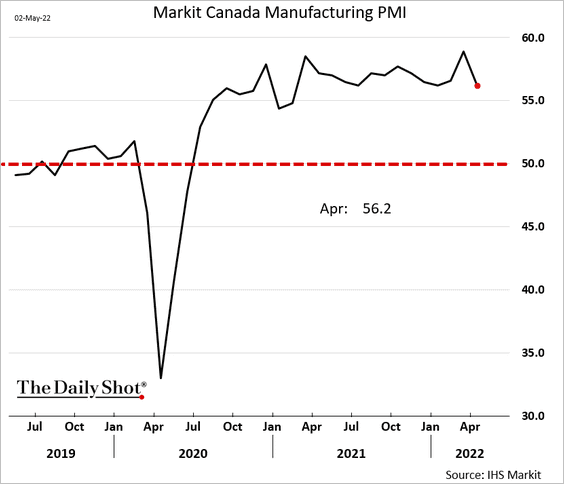
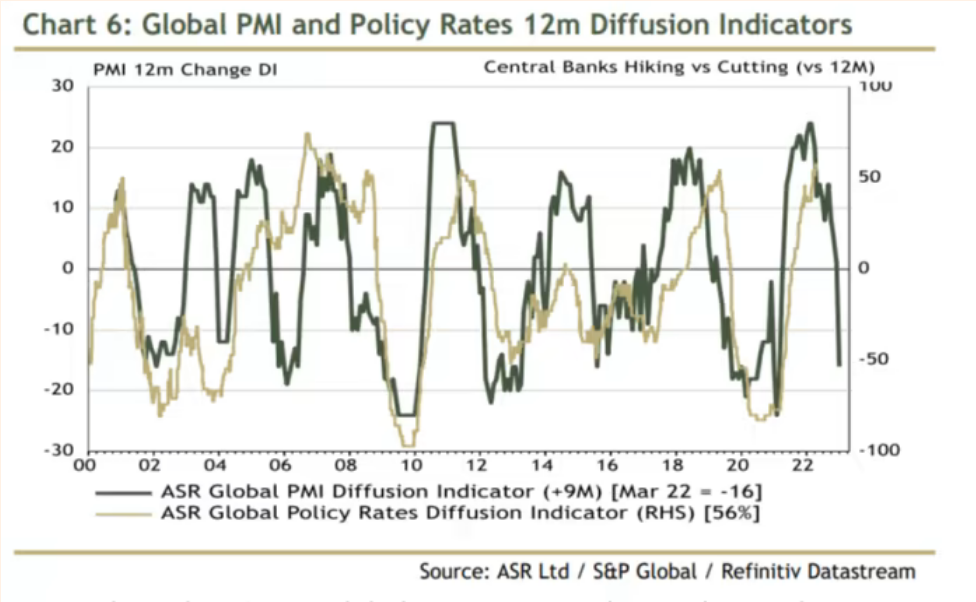
- While the reason for the decline is not uniform yet, adding increased costs of debt will be added soon to the growing list of reasons profit expectations are slowing production:
Backlogs of work climbed for the 21st consecutive month as firms reported material scarcity, truck shortages and freight delays, as well as difficulties sourcing skilled labour.
- Check out the different predictions for the USA inflation and central bank rates:
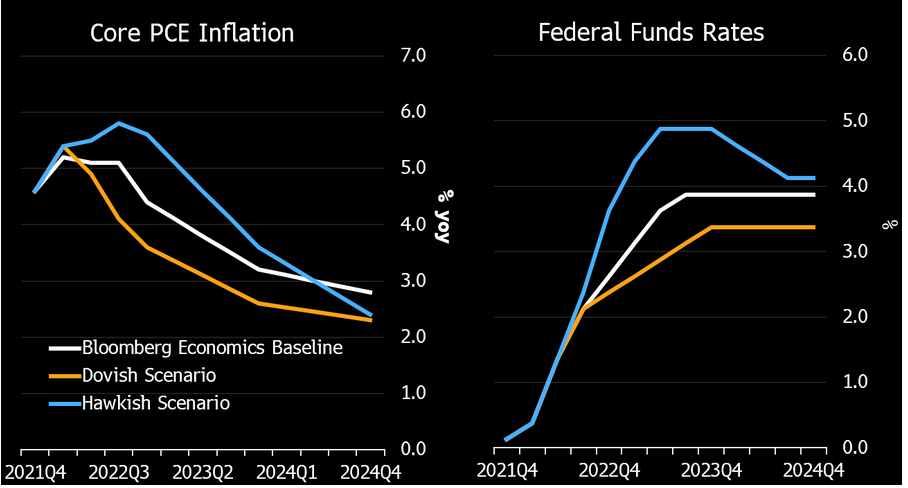
- And the effect on fix-rate mortgages in the USA
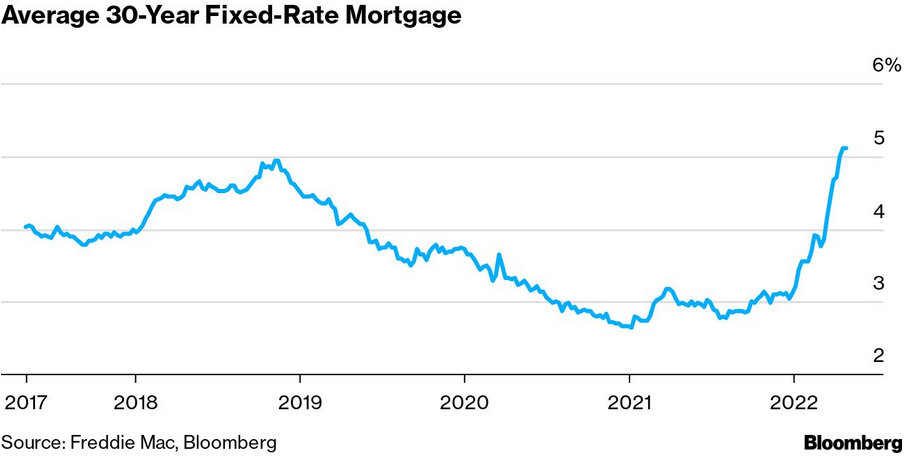
But, prices will stay elevated as there just are not that many homes for sale:
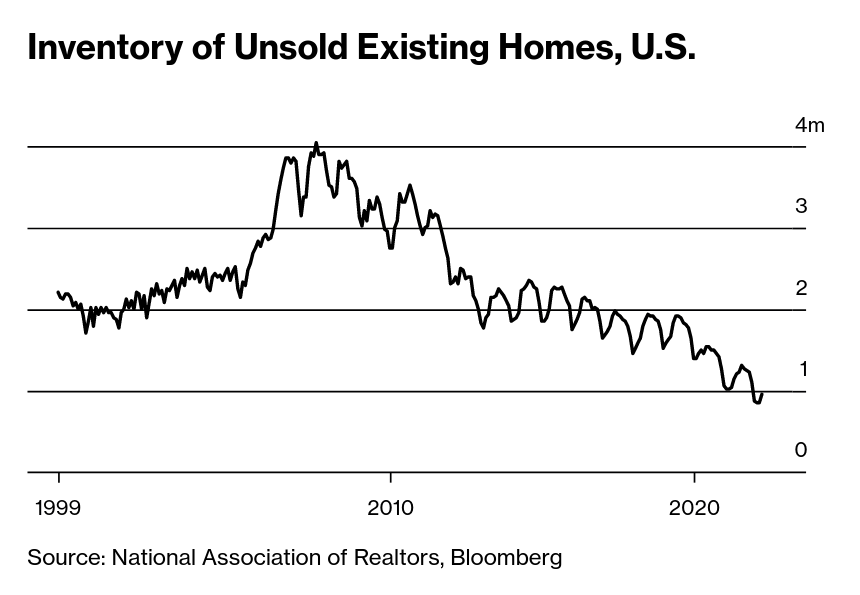
Capitalism. Isn't it grand?
Similar changes are being seen across the world as our rates are related to USA rates (UK, Australia, and Canada are raising rates along with the USA because TINA under this wacko model.)
Reducing CO2 emissions from shipping
- Japan has suggested setting a carbon price of $50/tonne of CO2 to be raised to $135/tonne by 2030 to drive changes in the industry to reduce emissions.
- Emissions in shipping make-up about 3% of global CO2 – about twice as much as steel production.
-
However, these recommendations will fall far short of what is needed for several reasons:
- the "tax"/price will only cover CO2 from burning the fuel – not the production of the fuel – on ships. Meaning if you make "clean fuel" by burning coal, it counts the same as fuel made from renewable resources.
- The tax is still too low to drive real investment in implementing new technologies – so mostly will just lead to a tax on shipping.
- It causes developing countries to pay most of the cost of CO2 from shipping – obviously this does not work since developing countries do not have most of the means to pay for the transition.
- It is a market "hope without basis" based policy. Policy makers have no models that show this will actually transition shipping to reduced CO2 production.
- It doesn't meet the climate targets even if the hope turns out to be aligned with reality – which it isn't.
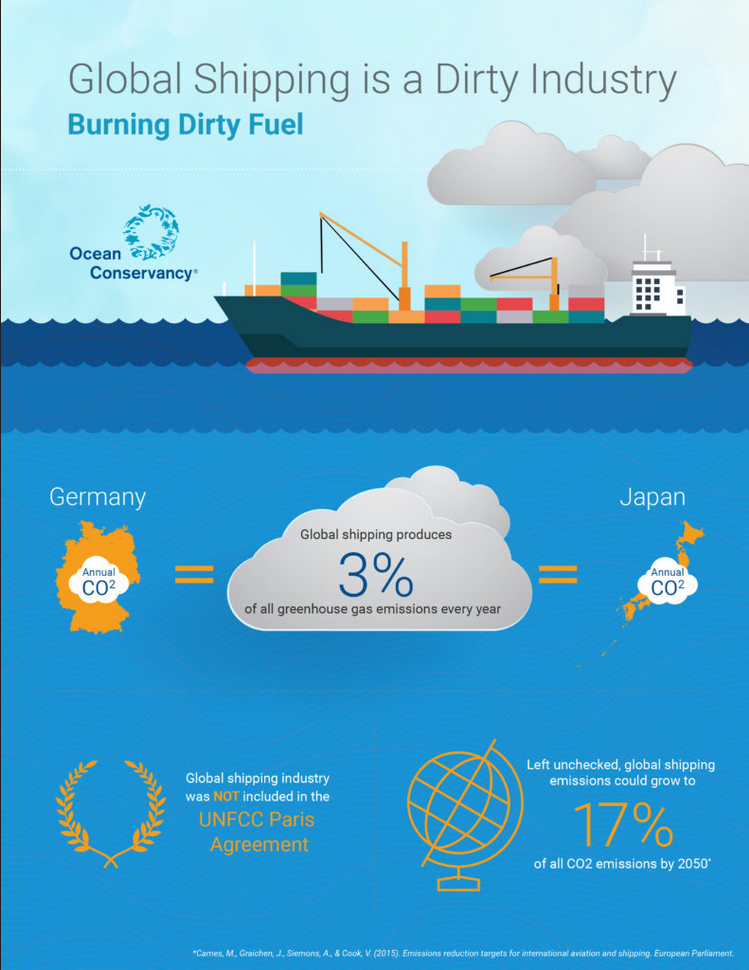
Natural Gas is not a transition fuel:
When researchers in Canada measured methane emissions at about 7,000 sites across the country’s oil and gas infrastructure, they found that the industry underestimated actual emissions by a factor of 1.5. This kind of chronic undercounting calls into question the very idea that natural gas is a cleaner alternative to coal. Gas leakage of more than about 3% makes the fuel worse for the climate than coal, according to a study published by the National Academy of Sciences.
- Leaking is at 9% in the USA. So, not even close.